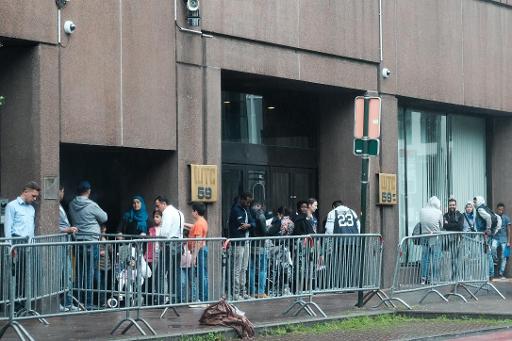Migrants in Belgium face a number of barriers when it comes to accessing the labour market, resulting in high rates of unemployment in all three regions of the country, according to a study conducted by researchers from the University of Ghent on 25 May.
In Wallonia, more than half (51.3%) of non-European foreigners aged 25-64 are considered "inactive" in the labour market, meaning they are unemployed and not actively looking for employment. In Brussels, that number is 43.1% and in Flanders, 41.1%.
Of the nearly 1.3 million inactive working-age adults in Belgium, 123,000 are non-European foreigners. Women in this group are particularly inactive: in Belgium, 59.3% of non-EU immigrant women aged 25-64 are unemployed and not looking for work, compared to just 26.6% for men.
Young people are also overrepresented among inactive workers
One contributing factor is education level: generally, the level of education of non-EU immigrants is much lower than for Belgians and EU workers. A large number (42.6%) do not hold a secondary school diploma, compared to just 17% of Belgians. 33.2% have completed higher education, while 45.1% of Belgians in the workforce hold a similar diploma.
Access to the labour market is difficult even for younger generation migrants: 21.8% of non-EU immigrants between the ages of 18 and 25 are not employed nor are they pursuing education.
Non-European immigrants are disproportionately represented in overall unemployment statistics. In total, they represent 9.4% of all economically inactive people in the country, while non-European foreigners account for just 6.4% of the working-age population.
The share of non-EU nationals among unemployment statistics is therefore double compared to EU nationals and Belgians.
Hurdles for migrant workers include systemic discrimination
A previous study conducted by the university concluded that around 44.2% of non-EU foreigners in the whole of Belgium are inactive, a concerning figure much higher than the EU average, and one of the explanations is discrimination in the labour market.
Within Brussels, almost 1 in 4 of all economically individuals aged 25-64 originate from outside the EU. In 2020, there were 215 cases of employment discrimination in Brussels, thought to be a gross underestimation of the actual problem.
“The disadvantage of non-European nationals on the labour market is very significant compared to other EU countries,” the report notes.
Related News
- Becoming Belgian: Only by birth, say Flanders residents
- VUB research uncovers discrimination in Leuven rental market
- City of Brussels accused of recruitment discrimination
Within the EU, this trend is less pronounced. Non-EU foreigners represent 8.6% of the economically inactive population and make up 5.8% of the total population.
All this points to a state-level failure to properly integrate migrants into the Belgian labour market. The report notes that the higher inactivity rate of non-EU foreigners stems from inadequacies in the Belgian labour market itself.
Translation: 9/12- At the same time, we see that cultural factors help to explain the difficult transition from school to work among women with a migration background. 10/12- But discrimination by employers is still an explanation for the poor labour market outcomes of migrants.
In order to combat this discrepancy, the report puts forward a series of recommendations for the Belgian authorities. It suggests that the government continue to combat hiring discrimination, develop new integration policies and invest in migrants' language skills.
“Stimulating the employment of these people is a huge opportunity to achieve the objectives of the different government agreements to increase the employment rate,” the study concludes.

